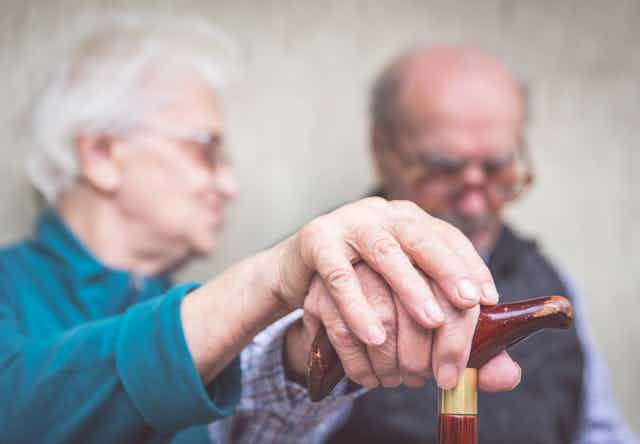Tonight ABC’s Four Corners will air the first of a two-part investigation into the often shocking treatment of the elderly in aged care homes around Australia.
The timing coincides with Prime Minister Scott Morrison’s weekend announcement of a royal commission into Australia’s aged care system. The prime minister said poor standards had led authorities to close one aged centre per month since the Oakden aged mental health home scandal.
South Australia’s Oakden facility closed nearly a year ago, following revelations of abuse and neglect dating back a decade.
While the terms of reference are yet to be determined, the royal commission will likely look into issues already raised by previous inquiries into the sector. These include the changing demands of Australia’s ageing population, staffing ratios, funding levels and the mental health, well-being and safety needs of nursing home residents.
Below are five articles in which our experts have previously explored the complex aspects of Australia’s aged care system, drawing on research which has exposed where the problems are, and have been for some time.
Lack of medical care
Our ageing population, and the focus on helping the elderly stay at home for as long as possible, means by the time people enter aged care they are older and sicker than before. Around half of people living in aged care today have dementia, depression, or another mental health or behavioural condition.
In fact, the proportion of older people requiring high care for complex needs, which includes assistance with all activities of daily living such as eating and bathing, has quadrupled from 13% in 2009 to 61% in 2016.
Yet there is no legal requirement for all aged care facilities to provide 24-hour registered nursing care. In the article below, Jane Phillips, David Currow, Deborah Parker and Nola Ries explore how today’s nursing home residents have minimal access to quality medical care.
1. Australia’s aged care residents are very sick, yet the government doesn’t prioritise medical care
In a separate piece on health care in nursing homes, Sarah Russell has also written:
nursing home providers looking to cut costs are bypassing registered nurses and employing less-skilled personal care attendants (PCAs) who aren’t adequately trained for the job.
2. Here’s why we need nurse-resident ratios in aged care homes
Funding for older Australians to stay at home
Research consistently shows more people want to stay in their own homes as they age. In the 2018-19 budget, the government announced an extra A$1.6 billion over the next four years for an additional 14,000 Home Care Packages. These deliver an agreed set of services to meet the specific needs of aged Australians who want to remain at home.
The government also subsidises a number (currently around 283,000) of residential care places for older people unable to continue living independently.
Aged care subsidies are allocated through a ratio, which aims to provide 113 subsidised care places for every 1,000 people aged 70 and over. This ratio will increase to 125 places for every 1,000 by 2021-22. Within the overall number of places, the government also sets sub-targets for the numbers of Home Care Packages and residential care places.
The government is aiming to amend the ratio in favour of more home care packages. By 2021-22, the target for home care packages will increase from 27 to 45 per 1,000, while the residential target is to reduce from 88 to 78 per 1,000.
But as Professor of Health Economics at University of Technology Sydney, Michael Woods has written, this still won’t be enough to meet demand.
3. There is extra funding for aged care in the budget, but not enough to meet demand
Poor mental health
Older Australians living in nursing homes represent one of society’s most vulnerable populations. More than 50% of residents in nursing homes suffer from depression compared to 10-15% of adults of the same age living in the community.
Recent research conducted by Briony Murphy and Professor Joseph Ibrahim from Monash University’s Health Law and Ageing Research Unit, found around 140 Australian nursing-home residents took their own lives between 2000 and 2013.
The authors found nearly 70% of those who took their own life were male, 66% had a diagnosis of depression and nearly 80% were experiencing one or more major life stresses, such as health deterioration. Around 43% were experiencing isolation and loneliness, and nearly 30% had trouble adjusting to life in a nursing home.
They wrote:
The small proportion of adults over 65 living with depression in the community shows that depression is not a normal part of the ageing process… the much larger figure of those suffering depression in nursing homes raises some serious questions.
4. Too many Australians living in nursing homes take their own lives
Poor oral health
Stories of abuse and neglect in nursing homes have also highlighted the issue of poor nutrition and oral health. In November 2017, the dire state of this was shown in a report of a nursing home resident in NSW who was found with maggots in her mouth the day before she died.
Researchers have long highlighted people living in aged care have substantially poorer oral health and three times the risk of untreated tooth decay than people living in the community.
Bronwyn Hemsley, Andrew Georgious, Joanne Steel and Susan Balandin collated a list of ways family members can help ensure their loved ones’ oral health is adequately looked after. This includes visiting your family member around mealtimes
…or helping the person to eat… Ask the resident permission to look into her mouth to check if she is swallowing or removing leftover food promptly.
5. The shocking state of oral health in our nursing homes, and how family members can help
If you or someone you know is experiencing depression or another mental health problem, contact Lifeline 13 11 14, beyondblue 1300 22 4636 or SANE Australia 1800 18 7263.

